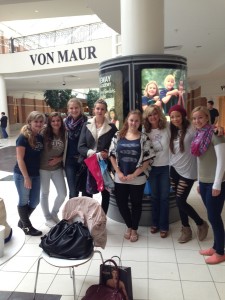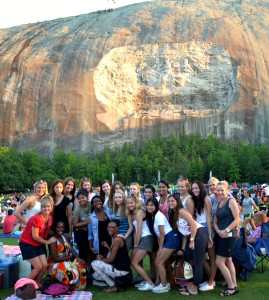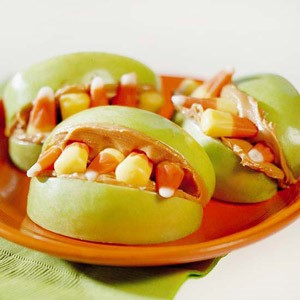ABC’s of a Successful Year as an Au Pair
Alcohol – The drinking age in most states is 21. Yes, you used to be able to drink in your country – but you can’t drink here if you are under 21. If you are supposed to get a ride home with someone who has had too much to drink – find another way! If you get caught drinking and driving you have to go home!
Boyfriends – Some host families will not like the idea of you having a boyfriend – they will feel threatened by the time he takes away from them. It is best to be honest and find out about their rules regarding your boyfriend picking you up at their home (they may not want him to even have their home phone number – let alone their address). Don’t ever expect your host family to allow your boyfriend to spend the night.
Buddy – Be a buddy to the new au pairs that arrive! Please remember how it felt for you in those first days! Call new au pairs to say hello, take them out for coffee or to bring them to their first cluster meeting.
Car – The car is a privilege not a right. Please do not demand the car – there may be times when you do not have access to one (bad weather, other car not working, au pair car being repaired). Do not drive and use a cell phone at the same time! Never, ever – leave the children unattended in the car!!
Community Counselor – Your community counselor is here to help you to have a wonderful year. If you need advice about anything – call! Remember you can talk to your counselor on the phone. Many au pairs feel they need to discuss something – face to face – that is not necessary. Sometimes it is more important to talk immediately – than to wait for a convenient time for both of you to meet.
Cluster Meetings – A successful au pair will come to the monthly cluster meetings and stay connected to her counselor and the other au pairs. If you don’t come to the meetings – I don’t get to know you and there may be a time during your year that it is critical to you that I do know you!!
Downloading – Do not download anything on to your host family’s computer without their permission.
Eating – Au Pairs complain about gaining weight during their year here – portions are much larger – and it’s easy to gain weight. Be careful, eat right and make sure you get enough exercise.
Friends – Unbelievable as it may sound friends can cause problems. Make sure that they are respectful of your host family’s rules, too.
Grooming – Silly as it may seem to you – Americans shower everyday and change their clothes everyday. You will be expected to do the same.
Homesickness- It is very normal to feel homesick! The first 2 weeks to a month can be very challenging for you! Give yourself time and understand that your feelings are very normal!
Internet – You should never be on the internet when you are taking care of the host children. They deserve your undivided attention. Ask your host family when it is convenient for you to be on the internet. For some families you will be tying up their phone line – please be respectful and don’t stay on for hours and hours. Never give out information about yourself or your host family in a CHAT ROOM – it is very dangerous!!
Jerks – You will meet a lot of jerks while you are here in the United States. Don’t trust everyone you meet – don’t give out your host family’s number until you truly know the person – and with your host family’s permission.
Listening – Listen to the needs of your host children and your host parents. Keep the lines of communication open.
Money – Don’t spend all of your money every week! It is not a good idea to live paycheck to paycheck, ever! Have money on hand for unexpected expenses – insurance deductibles (medical and car – in case of illness or a car accident), extra college costs, clothes, Starbucks, phone bills – the list can go on and on.
Negotiate – If you are unhappy with anything – you must communicate this to your host family. You many not want to do this when you have just arrived to their home – but after you have earned their trust and respect. Remember – if you want a rule to change – even after discussion it may not change. Some things are not negotiable!
Overwhelmed – If ever you are feeling overwhelmed – speak up immediately. Some times you just need to talk about it – and you will feel better.
Phone – You should never be on the phone during your work hours. Don’t monopolize your host family’s telephone line for hours at a time. If they have call waiting – answer it – if it is for your host family get off the phone and let them know they have a call. Take good messages if you answer the phone and your host family is not available.
Quiet – Be respectful of the hours that your host family is putting the children to bed and when they are going to bed, too. Noise should be kept to a minimum and no calls should come in after 9:00.
Responsible – Your host family has given you the responsibility for their children. Please take good care of them and always put their needs above yours during your working hours.
School – You are required to attend classes for six semester hours or its equivalent (80 hours) at an accredited U.S. post secondary institution.
Trustworthy – Be honest with your host family – if you feel you must lie to them – it is not a good match. Talk to your counselor about your feelings.
United States of America – May this year here be one of the best of your life. You are responsible for your destiny here. This year is what you make it. Don’t sit around and complain to other au pairs – and do nothing about your unhappiness. Sometimes it is just a change of attitude that is necessary.
Vacation – Vacations need to be mutually agreed upon. Talk to your host family about when a good time for you to vacation will be.
Work/Study/Play – The best au pairs find a balance between their work as an au pair, their school and their free time. Obviously, your host family’s primary concern is that their children are being cared for by a responsible adult.
X-Rated – Attitudes regarding sex may be very different in your country. Please be aware of what is appropriate viewing for children in America.
Yo Yo – This year will be filled with ups and downs. If you understand that – it will make things a lot easier.
ZZZZ – Make sure you get enough sleep! You need to be on top of your game everyday!!





